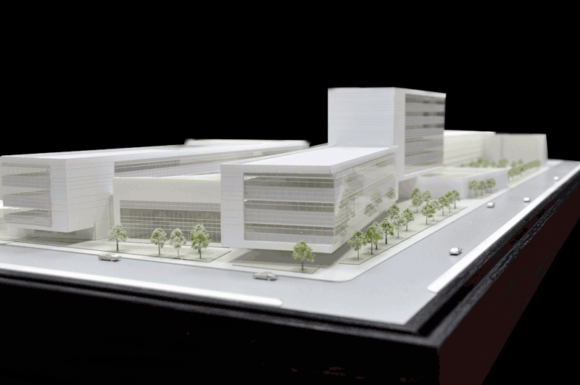Zurich American Insurance Co. may pursue a subrogation lawsuit against a subcontractor that it says forced it to pay a nearly $3 million builder’s risk claim by designing a defective stormwater detention system during construction of an academic building at a Chicago community college campus.
A panel with the Illinois 1st District Appellate Court on Tuesday reversed a trial court decision and found that the contract between City Colleges of Chicago and its design contractor, Moody Nolan, required the college system to be a third-party beneficiary. The court said it didn’t matter that a subcontract between Moody Nolan and Infrastructure Engineering attempted to shield the engineering company from any liability to third parties.
“To the extent the prime contract and the subcontract conflict on this point, the prime contract provision would control,” the three-judge panel said in its opinion.
City Colleges hired CMO as general contractor for construction of a new academic building at Malcolm X College. Moody Nolan was hired as the lead architect for the project. The company hired Infrastructure Engineering to design a stormwater detention system.
A fact sheet on City Colleges’ website says that community college system budgeted $251 million to expand the Malcolm X College campus. The completed project would expand the capacity of the college to 20,000 students, an increase of 6,000 over the existing campus buildings.
In August 2015, before the stormwater system was completed, a rainstorm caused the basement of the academic building to flood, damaging the structure and electrical and mechanical systems.
Zurich paid $2,998,929.35 to repair damages under a builder’s risk policy that it had sold to CMO. The insurer then filed a subrogation action against Infrastructure Engineering in Cook County Circuit Court alleging that the defective stormwater detention system that it designed caused the flooding.
Infrastructure filed a motion for summary judgment, arguing that its subcontract with Moody Nolan did not name either CMO or City Colleges as a third-party beneficiary. The trial court ruled that City Colleges is a third-party beneficiary, but the court also found that Zurich had “not shown it is subrogated to [City Colleges’] rights of recovery.”
Zurich asked the trial court to reconsider. The trial court stuck by its guns, pointing to a line of cases that generally establish three prerequisites to sustain a subrogation action: 1. A third party must be primarily liable to the insured for the loss. 2. The insurer must be secondarily liable to the insured for the loss under an insurance policy. 3. The insurer must have paid the insured under that policy.
The trial court said that City Colleges suffered no loss and was not paid by the insurer, two of the requirements for a subrogation action.
Zurich appealed. The insurer argued that the trial court had focused on the standard for “equitable subrogation” cases which are not applicable because the insurer was arguing that subrogation was required by its insurance contract.
The appellate panel agreed. The court noted the Illinois Supreme Court ruled that there are two broad categories of subrogation rights: those that arise by contract and common law or equitable rights.
“In this case, we have no need to look to the common law or equitable principles that generally apply to subrogation claims based in equity,” the opinion says. “We have express contractual terms that define the right to subrogation and the scope of that right.”
The panel said the trial court erred by requiring Zurich to show that it had complied with equitable principles instead of compliance with the contract. City College was clearly a third-party beneficiary of the contract between Moody Nolan and Infrastructure Engineering, which gives Zurich a subrogation right, the court said.
About the photo: This model, provided by City Colleges of Chicago, show the planned expansion of Malcolm X College.
Was this article valuable?
Here are more articles you may enjoy.


 Berkshire Utility Presses Wildfire Appeal With Billions at Stake
Berkshire Utility Presses Wildfire Appeal With Billions at Stake  Tesla Sued Over Crash That Trapped, Killed Massachusetts Driver
Tesla Sued Over Crash That Trapped, Killed Massachusetts Driver  Credit Suisse Nazi Probe Reveals Fresh SS Ties, Senator Says
Credit Suisse Nazi Probe Reveals Fresh SS Ties, Senator Says  UBS Top Executives to Appear at Senate Hearing on Credit Suisse Nazi Accounts
UBS Top Executives to Appear at Senate Hearing on Credit Suisse Nazi Accounts 